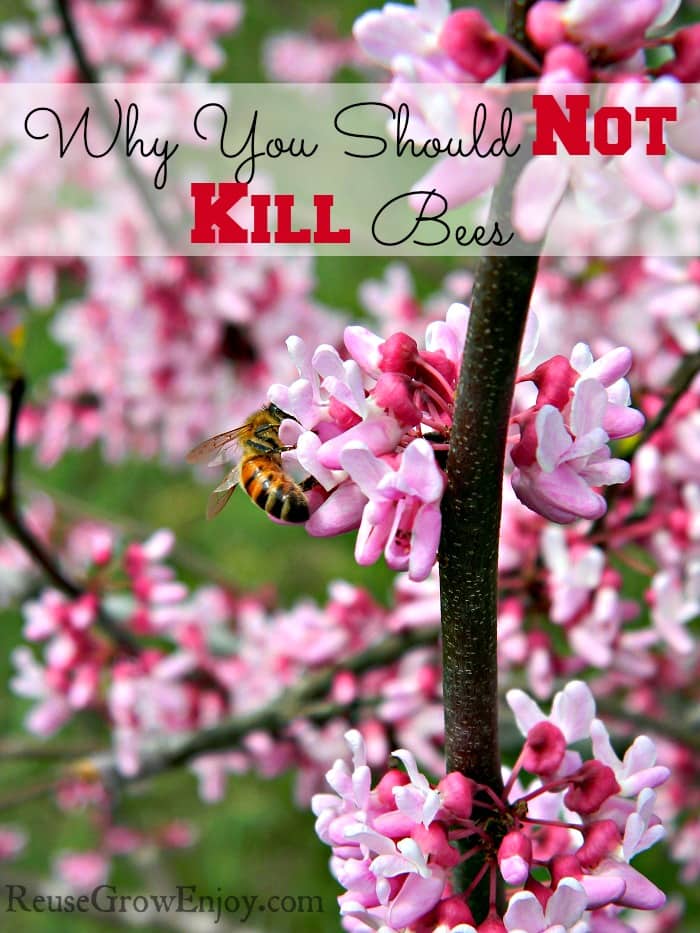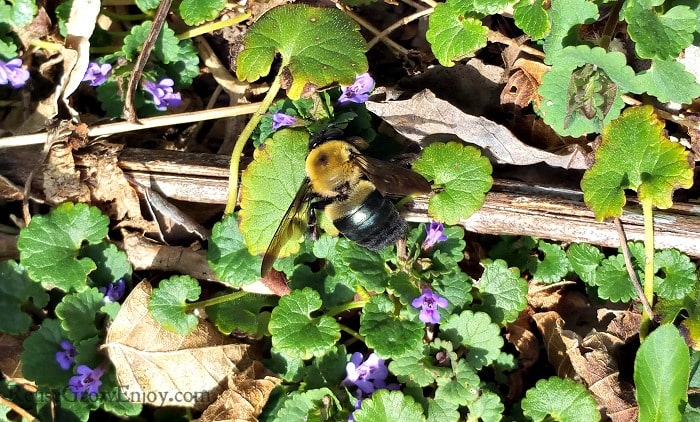
Why You Should Not Kill Bees
Is there really a question on why we should not kill bees? Without bees, mankind would not be. Over 90 percent of the world’s plants are pollinated by bees. In North America alone there are approximately 4,000 species of bees that help to pollinate agricultural crops. But sadly bees are dying off in alarming numbers. As a result food supply is left hanging in the balance. Chances are most of the fresh foods, such as nuts, melons, fruits and vegetables that you enjoy, are all pollinated by bees.
Why Bees Are Dying Off:
The truth is Scientists know that bees are dying due to a variety of reasons, global warming, pollution, and drought being just a few. Most of these causes however are interrelated and result in what is now being called Colony Collapse Disorder (CCD). This disorder is not a mystery as the chemical industry would like to have us to believe. The bottom line is that humans are largely responsible for the two most prominent causes of Colony Collapse: habitat loss and pesticides.
Habitat Loss:
With more and more houses being built, the nature where bees eat, live and thrive is being taken away. Many plants that people tend to think of as weeds are being destroyed simply because people consider them a nuisance. When they are destroyed, it is taking away the very things that the bees need to survive.
Pesticides:
In our grandparents day when weeds overtook your garden or yard, the answer was a hoe and elbow grease. Today the all to often method of choice for weed control comes in the form of a spray bottle. True this may seem like a quick fix to a beautiful yard and garden, but it’s a death sentence for bees.
Pesticides and insecticides are being sprayed, powdered, and genetically engineered into our plants and seeds.
Insecticides called neonicotinoids are another quick fix in the fight against insects when it comes to gardening. The problem is insecticides often kill everything both good and bad.
Neonicotinoids are a fairly new class of insecticides that are related to nicotine. Neonicotinoids are much more toxic to insects, than they are to mammals or birds, and are water soluble, both of which may seem to be beneficial qualities. However, the impact of neonicotinoid insecticides on insect pollinators is a highly controversial topic when it comes to CCD. I recall that not so long ago the effects of nicotine on humans was also a highly controversial topic, but not any more.
What You Can Do To Help Not Kill Bees:
Don’t kill bees! Increase bee-friendly habitats. When your neighbors look at your yard and ask about your unsightly weeds, tell them you’re eco-friendly. Not only will you look like you’re in with green, but you will save you lots of time and money, and the bees will thank you!
Plant Bee-Friendly Flowers and Shrubs there’s nothing better than the beautiful aroma of fresh seasonal flowers and herbs. If you lack garden space, try container planting on your balcony, window boxes or hanging baskets.
Support local and organic farmers, there is nothing like a farmers market for finding fresh fruits and veggies when you can not grow your own. To find your local farmers market, check out http://www.localharvest.org/farmers-markets.
You should only use organic certified weed-killers, insect repellents, seeds. If you can’t find organic or it is out of your budget, try making/saving your own.
Buy local organic honey. Local beekeepers care about the health of their bees, they don’t just focus on their bottom line. Besides when you eat honey that is local, it is said to help fight off seasonal allergies.
Set up a bee refreshment station. It doesn’t have to be fancy a simple bowl of water with marbles in a pie pan or a self-filling pet-bowl full of rocks, is a welcome resting place for weary bees. Some people even add a little organic sugar to the water to provide an added energy boost. Never give bees artificial sweeteners. If you don’t want them to be around you, place your station away from where you hang out.
Last but by no means least, consider becoming a beekeeper unless your allergic to bees. You can find great beekeeper supplies on place like Amazon.
If you enjoyed this post on Why You Should Not Kill Bees, you may want to check out my post on Bee Pollen Benefits.



Megan says
Hi, I’m a student working on a project about bees and am using your website as a source. I was wondering if it would be too much trouble to ask for the date your published this?
Reuse Grow Enjoy says
Hi Megan, this post was published on 3/31/16. All the info in the post should still be up to date.